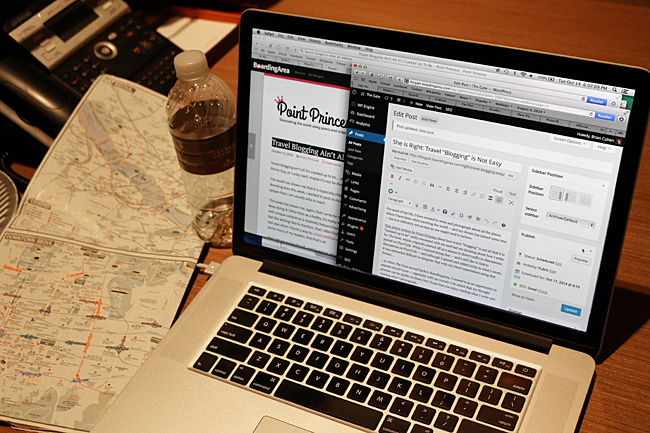I thought that perhaps my imagination was playing tricks on me; but it seemed to me that media organizations have been shutting down their Comments sections — so I searched as to whether or not this is actually a trend of sorts…
…and I stumbled onto two articles — both of which were written by Clothilde Goujard at Medium — which discusses the arguments for and against maintaining a Comments section.
Ditch the Comments Section For Social Media?
Media organizations are “shutting down traditional comments, not users opinion expression” and are instead “moving the conversation to the social platforms”, according to this article.
One would think that introducing an extra step — and, therefore, barrier — in the process would reduce the amount of discussion pertaining to a particular article; but some people believe that “social media such as Facebook or Twitter make for higher quality conversations than story-page comments because of the barrier — readers have to make an extra effort to go to another website.” This purportedly leads to improved engagement between the media organization and its readers.
Additionally, personnel and financial resources are finite within a media organization — which leads to the rationalization of using those resources as efficiently as possible. Concentrate them on the official social media sites of the company instead of spreading them thin to include covering — and replying to — comments posted in the Comments sections of articles, which can supposedly lead to reduced engagement with the audience in general.
Scott Montgomery — who is the managing editor for digital news at National Public Radio — defends the decision of closing down its Comments sections on Wednesday, August 23, 2017 by finding better ways to connect with its audience: “NPR introduced public comments to its website eight years ago, when many of today’s most popular venues for digital interaction didn’t yet exist or were in their infancy. Since then, we’ve explored and developed many options for strengthening those connections. Some of these methods have proven invaluable. Others less so. After much experimentation and discussion, we’\ve concluded that the comment sections on NPR.org stories are not providing a useful experience for the vast majority of our users.”
Of course, no Comments section was available to comment on this decision.
Keep the Comments section?
Some media organizations have kept their Comments sections because they still believe in their ability to create constructive discussion; while others believe that the discussions posted on social media can be “fragmented” and are not of the same quality as what is posted in a Comments section.
“Giving a voice to readers through story-page comments sections is still seen by many publishers as an efficient and essential tool to create a loyal community”, according to this article. “Some media also consider story-page comments sections as necessary spaces for journalism to function as a democratic institution.”
However, some people caution that having a Comments section may not be enough for optimum engagement with an audience.
“I think one of the challenges the news industry has had generally is that we’ve tried to use that one tool [comments sections] for what is a series of different jobs. It’s like walking around your house trying to assemble furniture, and all you have is a hammer. A hammer is useful sometimes. You need a hammer but sometimes, a screwdriver or a pair of pliers could do a better job,” Greg Barber — who is the project advisor and director of digital news projects at The Washington Post and is a member of the team of the Coral Project — was quoted as saying in the aforementioned article.
Summary
Although I have been a moderator at FlyerTalk for years, I do not believe in squelching the opinions and thoughts of people who read the articles I write at The Gate — even if they happen to be disparaging — as the only comments which are deleted are those which are purely “spam”.
I am also of the belief of ensuring that commenting on my articles is as easy for you to do as possible — which is the main reason why I have not employed Disqus for the Comments section of The Gate; and a reason why I have no intention of shutting down the Comments section itself…
…but I am always interested to read your thoughts: what do you believe are ways in which I can improve engagement with you pertaining to what I write? Is there a technology which I should consider? Is the status quo fine with you?
Please let me know — in the Comments section below, of course…
Photograph ©2014 by Brian Cohen.
“Easter Egg” Time — But on Christmas Day?!?
If you have read the article this far down, thank you — I appreciate it…
…and I am just letting you know that I finally buckled down and opened a Twitter account, which you can access here:
I have not announced it publicly yet — except for now, of course — as I am testing out Twitter to see if it works overall for The Gate; and I am hesitantly thinking about opening other social media accounts for The Gate.
The Gate also has a YouTube account — four videos have been uploaded there at this time — and I have a LinkedIn account.
Please keep in mind that the Twitter account is for The Gate. It is not a personal social media account for myself…
…and please let me know what you think about the Twitter account I recently launched — and even follow it, if you are so inclined.
Thank you…

